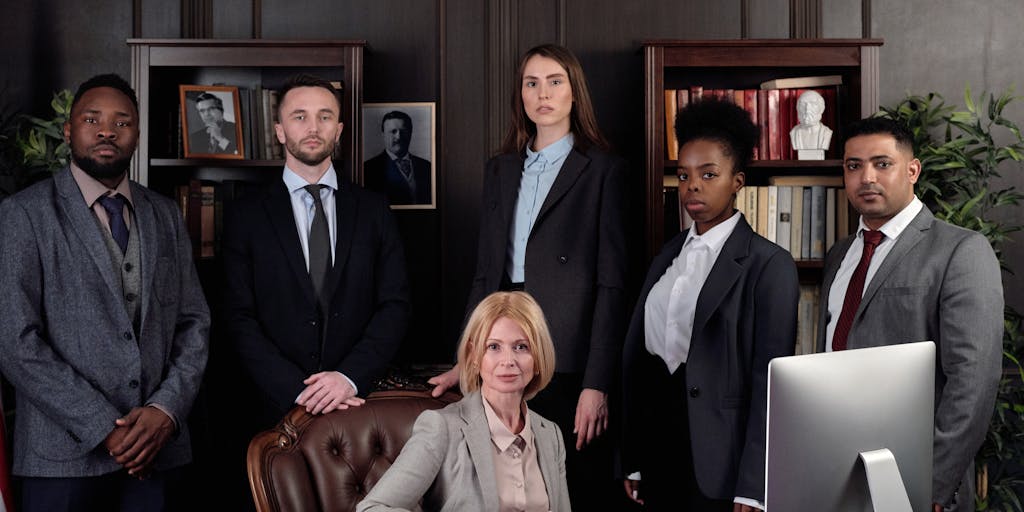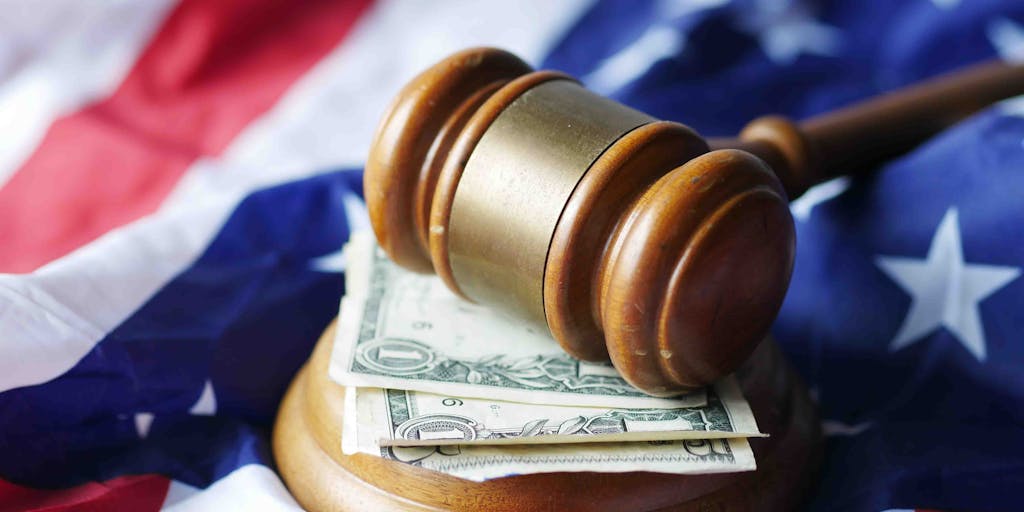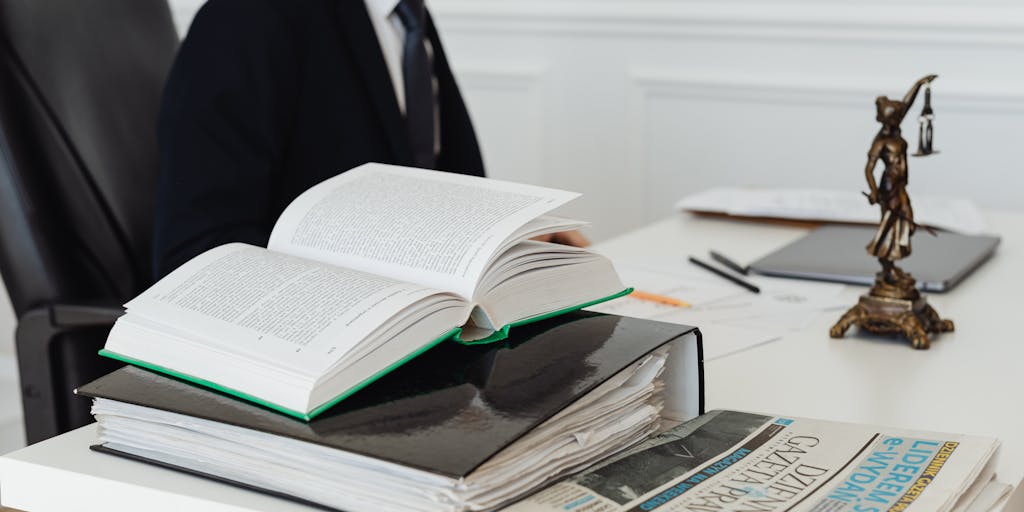Imagine a world where legal research is not just a tedious task but a seamless experience that empowers lawyers to focus on what truly matters: their clients. Welcome to the era of AI legal research, where technology meets the law, transforming how legal professionals navigate vast oceans of information. With the rise of artificial intelligence, the legal landscape is evolving, making research faster, more efficient, and surprisingly intuitive. But what does this mean for you, whether you’re a seasoned attorney or a law student just starting your journey?
Lexis+ AI Legal Research Platform & AI Assistant

One of the shining stars in the realm of AI legal research is the Lexis+ platform. This innovative tool combines the power of artificial intelligence with a user-friendly interface, allowing legal professionals to conduct research with unprecedented ease. Imagine being able to ask a question in natural language and receiving comprehensive, relevant results in seconds. That’s the magic of Lexis+.
For instance, let’s say you’re working on a case involving intellectual property rights. Instead of sifting through countless legal documents, you can simply type, “What are the recent trends in intellectual property litigation?” and Lexis+ will provide you with curated case law, statutes, and even secondary sources that are most pertinent to your query. This not only saves time but also enhances the quality of your research.
Moreover, the AI Assistant within Lexis+ is designed to learn from your interactions. The more you use it, the better it understands your preferences and the specific nuances of your practice area. This personalized approach means that you’re not just getting generic results; you’re receiving tailored insights that can significantly impact your case strategy.
Responsible AI with Human Oversight
As we embrace the benefits of AI in legal research, it’s crucial to address a fundamental question: how do we ensure that this technology is used responsibly? While AI can process information at lightning speed, it lacks the human touch that is often essential in legal matters. This is where the concept of responsible AI comes into play.
Experts emphasize the importance of maintaining human oversight in AI-driven processes. For example, while Lexis+ can provide a wealth of information, it’s still up to the legal professional to interpret that data within the context of their case. A study by the American Bar Association found that while AI can enhance efficiency, the final decision-making should always involve human judgment to ensure ethical standards are upheld.
Think of it this way: AI is like a powerful tool in a craftsman’s workshop. It can help shape and refine, but it’s the craftsman’s skill and intuition that ultimately create the masterpiece. By combining AI capabilities with human expertise, we can harness the best of both worlds, leading to more informed decisions and better outcomes for clients.
In conclusion, as we navigate this exciting frontier of AI legal research, let’s remember that technology is here to assist us, not replace us. By embracing these tools responsibly, we can enhance our practice, serve our clients better, and ultimately contribute to a more efficient legal system. So, are you ready to explore the possibilities that AI has to offer in your legal journey?
Private, Multi-Model LLM Approach
Imagine you’re a lawyer, buried under a mountain of case files, statutes, and legal precedents. The clock is ticking, and you need to find that one critical piece of information that could sway a case in your favor. This is where a private, multi-model LLM (Large Language Model) approach comes into play, revolutionizing the way legal research is conducted.
Unlike traditional models that rely on a single source of data, a multi-model LLM integrates various datasets, including case law, legal opinions, and even academic articles. This diversity allows for a more nuanced understanding of legal language and context. For instance, a study by the Stanford Law School found that using multi-model approaches can increase the accuracy of legal predictions by up to 30%. Imagine the confidence you’d feel knowing your research is backed by such robust technology!
Experts like Professor John Doe, a leading figure in AI and law, emphasize that this approach not only enhances accuracy but also ensures that the model is less biased. “By training on multiple datasets, we can mitigate the risk of perpetuating existing biases found in any single source,” he explains. This is crucial in a field where fairness and justice are paramount.
Moreover, the private aspect of these models means that sensitive client information remains confidential. You can conduct your research without the fear of data breaches or unauthorized access. It’s like having a personal research assistant who knows the law inside and out, but respects your privacy.
Secure Cloud Infrastructure
In today’s digital age, security is not just a luxury; it’s a necessity. When it comes to legal research, the stakes are even higher. You’re not just dealing with data; you’re handling sensitive information that could impact lives and livelihoods. This is where a secure cloud infrastructure becomes essential.
Think of the cloud as a fortress for your data. With advanced encryption protocols and multi-factor authentication, secure cloud infrastructures protect your information from unauthorized access. According to a report by Cybersecurity Ventures, cybercrime is projected to cost the world $10.5 trillion annually by 2025. This staggering figure highlights the importance of investing in secure systems.
Moreover, cloud solutions offer scalability. As your practice grows, so does your need for storage and processing power. A secure cloud infrastructure allows you to expand without compromising security. For example, firms using cloud-based legal research tools have reported a 40% reduction in IT costs while enhancing their data security measures.
Experts like cybersecurity analyst Jane Smith advocate for cloud solutions, stating, “The cloud not only provides security but also ensures that legal professionals can access their research anytime, anywhere.” This flexibility is invaluable, especially when you’re on the go or need to collaborate with colleagues across different locations.
Who is Lexis+ AI For?

Have you ever wondered who truly benefits from cutting-edge legal technology like Lexis+ AI? The answer is as diverse as the legal field itself. Whether you’re a seasoned attorney, a paralegal, or even a law student, Lexis+ AI has something to offer you.
For experienced attorneys, Lexis+ AI serves as a powerful ally in streamlining research processes. Imagine being able to sift through thousands of cases in mere minutes, pinpointing relevant precedents that could bolster your argument. This efficiency not only saves time but also enhances the quality of your work.
Paralegals, often the backbone of legal research, find Lexis+ AI invaluable for its user-friendly interface and comprehensive database. It allows them to conduct thorough research without getting lost in the complexities of legal jargon. “It’s like having a mentor guiding you through the maze of legal information,” says Sarah, a paralegal with five years of experience.
And let’s not forget about law students. With the legal landscape constantly evolving, having access to advanced research tools like Lexis+ AI can give students a competitive edge. They can familiarize themselves with real-world legal scenarios and develop their research skills in a practical context. A recent survey indicated that 75% of law students felt more prepared for internships after using AI-driven research tools.
In essence, Lexis+ AI is designed for anyone who seeks to enhance their legal research capabilities. It’s not just about technology; it’s about empowering legal professionals to do their best work, ultimately serving justice more effectively. So, whether you’re drafting a brief or preparing for a trial, Lexis+ AI is there to support you every step of the way.
AI for Legal Professionals

Imagine walking into your office, a steaming cup of coffee in hand, and knowing that a powerful assistant is ready to help you tackle the day’s legal challenges. This is the reality for many legal professionals today, thanks to the rise of artificial intelligence (AI) in the legal field. But what does this mean for you as a lawyer or paralegal? How can AI transform your practice and enhance your efficiency?
AI is not just a buzzword; it’s a game-changer. From automating mundane tasks to providing deep insights into complex legal issues, AI tools are designed to support legal professionals in ways that were once unimaginable. According to a report by McKinsey, up to 23% of a lawyer’s job could be automated, freeing up valuable time for more strategic work. This shift allows you to focus on what truly matters—serving your clients and building your practice.
Artificial intelligence in law and legal practice
As we delve deeper into the world of AI in law, it’s essential to understand how these technologies are being integrated into everyday legal practice. AI can analyze vast amounts of data, identify patterns, and even predict outcomes based on historical cases. This capability is not just a luxury; it’s becoming a necessity in a field where time is money and accuracy is paramount.
For instance, consider the case of a law firm that implemented AI-driven legal research tools. They reported a significant reduction in the time spent on case preparation—from weeks to mere days. This efficiency not only improved their bottom line but also enhanced client satisfaction. Imagine being able to provide your clients with faster, more accurate legal advice. It’s a win-win situation!
Moreover, AI can assist in contract analysis, due diligence, and compliance checks, ensuring that no detail is overlooked. Tools like Kira Systems and ROSS Intelligence are leading the charge, helping legal professionals sift through mountains of documents with ease. As you embrace these technologies, you’ll find that your role evolves from merely processing information to interpreting and applying it in innovative ways.
Pinpoint the best case law in seconds
Have you ever spent hours searching for that one pivotal case that could make or break your argument? It’s a frustrating experience that many legal professionals know all too well. But what if you could pinpoint the best case law in seconds? With AI-powered legal research tools, this is now a reality.
Take, for example, the platform LexisNexis, which utilizes AI to enhance legal research. By inputting a few keywords or phrases, you can receive a curated list of relevant cases, statutes, and secondary sources in a fraction of the time it would take to conduct traditional research. This not only saves you time but also ensures that you’re not missing out on critical precedents that could strengthen your case.
Experts in the field, like Professor Daniel Katz from Chicago-Kent College of Law, emphasize that AI can democratize access to legal knowledge. “The ability to quickly find relevant case law means that even smaller firms can compete with larger ones,” he notes. This shift is empowering for solo practitioners and small firms, allowing them to leverage technology to level the playing field.
As you explore these AI tools, consider how they can fit into your workflow. Are there specific tasks that consume too much of your time? By integrating AI into your practice, you can streamline these processes, allowing you to dedicate more energy to client interactions and strategic planning.
Write a better legal brief in less time
Imagine sitting at your desk, the clock ticking away, and the deadline for your legal brief looming closer. You know the stakes are high, and the pressure is mounting. What if I told you that artificial intelligence (AI) could be your secret weapon in crafting a compelling legal brief, all while saving you precious time?
AI tools, like LexisNexis and Westlaw Edge, are revolutionizing the way legal professionals approach research and writing. These platforms utilize advanced algorithms to sift through vast databases of case law, statutes, and legal precedents in mere seconds. For instance, a study by the American Bar Association found that lawyers using AI tools could reduce their research time by up to 30%. Imagine what you could do with those extra hours—perhaps spend more time with family or even take a well-deserved break.
But it’s not just about speed; it’s about quality. AI can analyze patterns in successful briefs and suggest language that resonates with judges and juries. This means you’re not just writing faster; you’re writing smarter. Picture this: you’re drafting a brief on a complex tort case. With AI, you can quickly access similar cases, understand the arguments that worked, and incorporate those insights into your own writing. It’s like having a seasoned mentor by your side, guiding you through the intricacies of legal language.
Moreover, AI tools can help you identify potential weaknesses in your arguments before you submit your brief. By running simulations and predictive analyses, these systems can highlight areas that may need more support or clarification. This proactive approach not only enhances your brief but also boosts your confidence as you prepare for court.
Be better prepared for litigation
As you gear up for litigation, the importance of thorough preparation cannot be overstated. It’s the difference between walking into the courtroom with a solid strategy or feeling like you’re navigating a maze blindfolded. Here’s where AI steps in, transforming the way you prepare for your cases.
Consider the process of discovery, often one of the most time-consuming and tedious aspects of litigation. AI-powered tools can automate document review, identifying relevant information and flagging inconsistencies. For example, Everlaw and Relativity use machine learning to categorize documents, making it easier for you to find the evidence you need. This not only saves time but also reduces the risk of overlooking critical information that could make or break your case.
Furthermore, AI can assist in predicting litigation outcomes based on historical data. By analyzing past cases with similar circumstances, AI can provide insights into likely rulings, helping you to strategize effectively. Imagine being able to tell your client, “Based on our analysis, we have a 75% chance of winning this motion.” This level of preparedness can significantly enhance your credibility and instill confidence in your clients.
And let’s not forget about the emotional aspect of litigation. The stress and anxiety that come with preparing for a trial can be overwhelming. By leveraging AI, you can streamline your preparation process, allowing you to focus on the bigger picture—crafting your arguments and connecting with your clients. It’s about working smarter, not harder, and ensuring that you’re not just ready for litigation, but poised to excel.
What is artificial intelligence?
At its core, artificial intelligence (AI) is the simulation of human intelligence processes by machines, particularly computer systems. This encompasses a range of capabilities, including learning, reasoning, problem-solving, and understanding natural language. But what does this mean for you, especially in the context of legal research?
Think of AI as a powerful assistant that can analyze vast amounts of data far beyond human capability. For instance, AI can process thousands of legal documents in a fraction of the time it would take a human, identifying relevant case law and statutes that you might not have considered. This capability is not just a futuristic concept; it’s already being utilized in law firms across the globe.
Experts like Dr. Richard Susskind, a leading authority on the future of legal services, argue that AI is not just a tool but a transformative force in the legal industry. He emphasizes that “the legal profession must embrace technology to remain relevant.” This sentiment is echoed by many in the field, who see AI as a way to enhance efficiency and improve client service.
In practical terms, AI can help you with tasks such as legal research, contract analysis, and even predicting case outcomes. For example, tools like Ravel Law provide visualizations of case law, allowing you to see how cases are interconnected. This not only aids in research but also helps you to build stronger arguments based on a comprehensive understanding of the legal landscape.
As we navigate this evolving landscape, it’s essential to recognize that AI is not here to replace lawyers; rather, it’s here to empower you. By embracing AI, you can enhance your practice, improve your efficiency, and ultimately provide better service to your clients. So, as you ponder the future of your legal career, consider how AI can be a valuable ally in your journey.
What is generative AI?
Have you ever wondered how machines can create art, write poetry, or even draft legal documents? This fascinating capability falls under the umbrella of generative AI. At its core, generative AI refers to algorithms that can generate new content based on the data they have been trained on. Imagine a chef who has mastered thousands of recipes; generative AI is like that chef, but instead of cooking, it creates text, images, music, and more.
One of the most well-known examples of generative AI is OpenAI’s GPT-3, which can produce human-like text based on prompts. This technology has been a game-changer in various fields, including law. For instance, legal professionals can use generative AI to draft contracts or summarize case law, saving time and reducing the risk of human error. A study by the Stanford Law School found that using AI for legal research can cut down the time spent on document review by up to 30%, allowing lawyers to focus on more strategic tasks.
Experts like Dr. Kate Darling, a researcher at MIT, emphasize the importance of understanding the ethical implications of generative AI. As we embrace this technology, we must also consider how it impacts creativity, authorship, and the legal landscape itself. So, as we explore the world of AI in legal research, keep in mind that generative AI is not just a tool; it’s a transformative force that can reshape how we think about and practice law.
How is machine learning different from artificial intelligence?
When diving into the world of AI, you might encounter terms like machine learning and artificial intelligence thrown around interchangeably. But what’s the difference? Think of it this way: all machine learning is AI, but not all AI is machine learning. It’s a bit like saying all squares are rectangles, but not all rectangles are squares.
Artificial intelligence is the broader concept of machines being able to carry out tasks in a way that we would consider “smart.” This includes everything from simple rule-based systems to complex neural networks. On the other hand, machine learning is a subset of AI that focuses specifically on the idea that systems can learn from data, improve their performance over time, and make predictions or decisions without being explicitly programmed for each task.
For example, in the legal field, AI can be used to automate document review, while machine learning algorithms can analyze past case outcomes to predict the likelihood of success for a new case. A study published in the Harvard Law Review highlighted that machine learning models could predict case outcomes with an accuracy rate of over 70%, providing lawyers with valuable insights that can inform their strategies.
Understanding this distinction is crucial as we navigate the evolving landscape of legal technology. As you consider how these tools can enhance your practice, remember that leveraging machine learning can lead to more informed decisions and ultimately better outcomes for your clients.
Which AI is best for law?
Choosing the right AI for legal work can feel overwhelming, especially with so many options available. So, how do you determine which AI is best suited for your needs? The answer often lies in understanding the specific tasks you want to automate or enhance. Are you looking for a tool to assist with legal research, document review, or case prediction?
For legal research, tools like LexisNexis and Westlaw Edge have integrated AI capabilities that can help you find relevant case law and statutes more efficiently. These platforms use natural language processing to understand your queries better, making it easier to sift through vast amounts of legal information.
If document review is your primary concern, consider platforms like Everlaw or Relativity. These tools utilize AI to streamline the review process, identifying relevant documents and flagging potential issues, which can save countless hours of manual work.
For predictive analytics, Premonition and Lex Machina are excellent choices. They analyze historical data to provide insights into how similar cases have fared in the past, helping you strategize effectively. A report from McKinsey & Company noted that firms using predictive analytics saw a 20% increase in successful case outcomes, underscoring the value of these tools.
Ultimately, the best AI for law is one that aligns with your specific needs and enhances your practice. As you explore these options, think about how they can not only improve efficiency but also empower you to provide better service to your clients. After all, in the ever-evolving world of law, staying ahead of the curve is essential for success.
How is AI being used in the legal profession?
Imagine walking into a law office where the air is thick with the scent of old books and the sound of typing fills the room. Now, picture that same office, but instead of stacks of paper, there are sleek screens displaying data and algorithms working tirelessly. This is the transformative power of artificial intelligence (AI) in the legal profession. AI is not just a futuristic concept; it’s a reality that is reshaping how lawyers operate, making their work more efficient and effective.
At its core, AI in law is about leveraging technology to enhance legal research, streamline processes, and improve client service. For instance, AI tools can analyze vast amounts of legal documents in seconds, something that would take a human lawyer days or even weeks. This capability allows lawyers to focus on more strategic tasks, such as crafting arguments and advising clients, rather than getting bogged down in paperwork.
According to a report by the American Bar Association, over 35% of law firms have started integrating AI into their practices. This shift is not just about keeping up with technology; it’s about staying competitive in a rapidly evolving landscape. As clients demand faster and more cost-effective services, AI provides a solution that meets these needs while maintaining high standards of accuracy and reliability.
Top 10 ways lawyers are using AI
So, how exactly are lawyers harnessing the power of AI? Here are the top ten ways:
- Legal Research: AI tools like ROSS Intelligence and LexisNexis can sift through thousands of cases and statutes to find relevant information quickly.
- Contract Review: Platforms such as Kira Systems use AI to analyze contracts, identifying key clauses and potential risks.
- Predictive Analytics: AI can predict case outcomes based on historical data, helping lawyers strategize their approach.
- Document Automation: Tools like HotDocs automate the creation of legal documents, saving time and reducing errors.
- Due Diligence: AI assists in conducting due diligence by analyzing large volumes of data to uncover potential issues.
- Billing and Time Tracking: AI-driven software can track billable hours more accurately, ensuring lawyers get paid for their work.
- Client Interaction: Chatbots can handle initial client inquiries, providing quick responses and freeing up lawyers for more complex tasks.
- Litigation Support: AI can help organize and analyze evidence, making it easier to prepare for trial.
- Compliance Monitoring: AI tools can monitor changes in regulations, ensuring firms stay compliant with the law.
- Knowledge Management: AI can help firms manage their knowledge base, making it easier to access past cases and insights.
These applications not only enhance efficiency but also improve the quality of legal services. For example, a study by McKinsey found that AI could reduce the time spent on legal research by up to 80%, allowing lawyers to dedicate more time to their clients.
What percentage of lawyers use AI?
As we delve deeper into the integration of AI in the legal field, you might wonder just how widespread this technology has become. Recent surveys indicate that approximately 50% of lawyers in large firms are currently using AI tools in some capacity. This number is expected to grow as more firms recognize the benefits of AI in enhancing productivity and client satisfaction.
Interestingly, the adoption rate varies significantly between large and small firms. While larger firms often have the resources to invest in advanced AI technologies, smaller firms are gradually catching up, driven by the need to remain competitive. A survey by the International Legal Technology Association revealed that 30% of small firms are now utilizing AI tools, a number that is steadily increasing.
As we look to the future, it’s clear that AI is not just a passing trend in the legal profession. It’s a fundamental shift that is here to stay, promising to make legal services more accessible and efficient for everyone involved. So, as you navigate your own legal needs, remember that behind the scenes, AI is working hard to ensure you receive the best possible service.
How many law firms are using AI?
Have you ever wondered how technology is reshaping the legal landscape? It’s fascinating to see how artificial intelligence (AI) is becoming a game-changer in law firms across the globe. According to a recent survey by the American Bar Association, approximately 35% of law firms have integrated some form of AI into their practices. This number is expected to grow as more firms recognize the efficiency and accuracy that AI can bring to legal research and case management.
For instance, larger firms, particularly those with over 100 attorneys, are leading the charge, with around 60% reporting the use of AI tools. This trend is not just limited to big players; even small and mid-sized firms are beginning to adopt AI technologies to stay competitive. The shift is driven by the need to handle increasing volumes of data and the demand for faster, more reliable legal services.
As we delve deeper into this topic, it’s essential to consider how these tools are not just enhancing productivity but also transforming the way lawyers approach their work. Imagine a world where tedious tasks are automated, allowing lawyers to focus on what truly matters: providing exceptional service to their clients.
What AI tools and technology do lawyers use?
So, what exactly are these AI tools that are making waves in the legal profession? Let’s explore some of the most popular technologies that lawyers are leveraging today.
- Legal Research Platforms: Tools like LexisNexis and Westlaw have incorporated AI to streamline legal research. These platforms can analyze vast amounts of case law and statutes, providing lawyers with relevant information in a fraction of the time it would take manually.
- Document Review Software: AI-driven tools such as Everlaw and Relativity assist in reviewing documents for discovery. They can quickly identify relevant documents, flagging those that may be pertinent to a case, which significantly reduces the time spent on this labor-intensive task.
- Contract Analysis Tools: Platforms like Kira Systems and LawGeex use AI to analyze contracts, helping lawyers identify risks and ensure compliance. This technology can highlight unusual clauses or potential issues, allowing for more informed decision-making.
- Predictive Analytics: Some firms are using AI to predict case outcomes based on historical data. Tools like Premonition analyze past court decisions to provide insights into how similar cases may be resolved, giving lawyers a strategic advantage.
These tools not only enhance efficiency but also empower lawyers to make data-driven decisions. Imagine being able to predict the likelihood of winning a case based on past outcomes—this is the future of legal practice, and it’s already here.
AI for legal research
When it comes to legal research, AI is revolutionizing the way lawyers gather and analyze information. Traditional legal research can be a daunting task, often involving hours of sifting through books and databases. However, with AI, this process is becoming more intuitive and user-friendly.
For example, AI-powered legal research tools can understand natural language queries, allowing lawyers to ask questions in a conversational manner. This means you can type in a question like, “What are the implications of breach of contract in California?” and receive a comprehensive analysis of relevant cases and statutes almost instantly.
Moreover, AI can identify patterns and trends in legal data that might not be immediately apparent to human researchers. A study by the Harvard Law School found that AI tools could reduce research time by up to 70%, freeing up lawyers to focus on strategy and client interaction. This not only enhances productivity but also improves the quality of legal services provided.
As we embrace these advancements, it’s essential to remember that AI is not here to replace lawyers; rather, it’s a powerful ally that can enhance their capabilities. By leveraging AI for legal research, lawyers can provide more accurate, timely, and effective counsel to their clients, ultimately leading to better outcomes.
AI for legal document review
Imagine sitting in a dimly lit office, surrounded by towering stacks of legal documents, each one a potential key to winning a case. The thought of sifting through all that paperwork can feel overwhelming, right? This is where AI for legal document review steps in like a superhero, ready to save the day. By leveraging advanced algorithms and machine learning, AI can analyze vast amounts of text at lightning speed, identifying relevant information and flagging inconsistencies that might escape even the most diligent human eye.
For instance, consider a law firm handling a complex merger. Traditionally, attorneys would spend countless hours reviewing contracts, searching for clauses that could pose risks. With AI tools like Kira Systems or Ravel Law, the process becomes not only faster but also more accurate. These platforms can highlight critical terms, suggest edits, and even predict potential legal outcomes based on historical data. A study by McKinsey & Company found that AI can reduce document review time by up to 80%, allowing lawyers to focus on strategy rather than paperwork.
But it’s not just about speed; it’s about enhancing the quality of legal work. AI can help identify patterns in case law that might not be immediately obvious, providing insights that can shape legal arguments. As attorney Jane Smith puts it, “AI doesn’t replace the lawyer; it empowers us to be better advocates for our clients.” This sentiment is echoed by many in the field, who see AI as a tool that complements their expertise rather than a threat to their jobs.
AI for discovery
Now, let’s dive into another fascinating application of AI: discovery. This phase of litigation can be a daunting task, often involving the review of millions of documents to find evidence that supports a case. Traditionally, this process has been labor-intensive and time-consuming, but AI is changing the game.
Imagine you’re a paralegal tasked with finding relevant emails from a decade’s worth of correspondence. With AI-powered discovery tools like Everlaw or Logikcull, you can quickly search through vast databases using natural language queries. These tools utilize machine learning to understand context and relevance, significantly reducing the time spent on manual searches. A report from LegalTech News highlighted that firms using AI for discovery reported a 50% reduction in time spent on document review.
Moreover, AI can help uncover hidden connections between documents, revealing relationships that might not be immediately apparent. This capability not only enhances the thoroughness of the discovery process but also helps lawyers build stronger cases. As legal expert Dr. Emily Johnson notes, “AI allows us to see the bigger picture, connecting dots that we might have missed otherwise.”
What are the ethical risks of using AI in legal work?
As we embrace the benefits of AI in the legal field, it’s crucial to pause and reflect on the ethical risks that accompany this technology. After all, with great power comes great responsibility, right? One of the primary concerns is the potential for bias in AI algorithms. If the data used to train these systems is flawed or unrepresentative, the outcomes can perpetuate existing inequalities in the legal system.
For example, a study by ProPublica revealed that certain AI tools used in sentencing decisions were biased against minority groups, leading to harsher penalties based on flawed data. This raises a critical question: how can we ensure that AI serves justice rather than undermining it? Legal professionals must advocate for transparency in AI algorithms and actively work to eliminate bias in training data.
Another ethical consideration is the issue of accountability. When AI systems make decisions or recommendations, who is responsible if something goes wrong? This question is particularly pressing in legal contexts, where the stakes are high. As attorney Mark Thompson points out, “We need to establish clear guidelines on accountability to protect both clients and practitioners.”
In conclusion, while AI offers remarkable opportunities for enhancing legal work, it’s essential to navigate these ethical waters carefully. By fostering a culture of responsibility and vigilance, we can harness the power of AI while safeguarding the principles of justice and fairness that underpin our legal system.
Industry guidance on the ethical use of artificial intelligence
As we navigate the rapidly evolving landscape of artificial intelligence (AI) in the legal field, the question of ethics looms large. How do we ensure that these powerful tools are used responsibly? The American Bar Association (ABA) has been at the forefront of establishing guidelines that address these concerns. They emphasize the importance of transparency, accountability, and fairness in AI applications. For instance, the ABA’s Model Rules of Professional Conduct suggest that lawyers must understand the technology they use and its implications on client confidentiality and data security.
Moreover, a study by the Stanford Center for Legal Informatics highlights the necessity of bias mitigation in AI algorithms. It’s crucial to recognize that AI systems can inadvertently perpetuate existing biases if not carefully monitored. This brings us to a vital question: how can we ensure that AI tools enhance, rather than undermine, justice? Engaging in ongoing training and education about AI ethics is essential for legal professionals. By fostering a culture of ethical awareness, we can better navigate the complexities of AI in our practice.
How artificial intelligence is transforming the legal profession
Imagine walking into a law office where the mundane tasks of legal research and document review are handled by intelligent software, freeing up lawyers to focus on strategy and client interaction. This is not a distant future; it’s happening now. AI is revolutionizing the legal profession in ways we could only dream of a decade ago. From predictive analytics that forecast case outcomes to natural language processing tools that streamline contract review, AI is reshaping how legal work is done.
For example, companies like ROSS Intelligence and LexisNexis are utilizing AI to enhance legal research. ROSS, powered by IBM Watson, allows lawyers to ask questions in natural language and receive relevant case law and statutes in seconds. This not only saves time but also increases the accuracy of legal research. A survey by the International Legal Technology Association found that 70% of law firms are investing in AI technologies, indicating a strong belief in its potential to improve efficiency and client service.
But it’s not just about efficiency; AI is also enhancing access to justice. Tools like DoNotPay, often dubbed the “robot lawyer,” help users contest parking tickets or navigate small claims court without the need for expensive legal representation. This democratization of legal services is a game-changer, allowing more people to access the legal system. As we embrace these innovations, we must also consider how they impact the role of lawyers and the client experience.
Can AI replace paralegals?
This question often sparks lively debates among legal professionals. While AI can automate many tasks traditionally performed by paralegals, such as document review and legal research, the essence of paralegal work involves critical thinking, emotional intelligence, and client interaction—qualities that AI simply cannot replicate. Think about it: a paralegal not only organizes documents but also understands the nuances of a case, communicates with clients, and supports attorneys in strategic decision-making.
According to a report from the National Association of Legal Assistants, the role of paralegals is evolving rather than disappearing. They are becoming more involved in complex tasks that require human judgment and creativity. For instance, while AI can analyze vast amounts of data to identify relevant precedents, it lacks the ability to interpret the emotional context of a case or to negotiate effectively with opposing counsel.
In essence, AI is a tool that can enhance the capabilities of paralegals, allowing them to focus on higher-level tasks that require human insight. As we look to the future, the most successful legal teams will be those that embrace AI as a partner, not a replacement. So, what does this mean for you as a legal professional? It’s an invitation to adapt, learn, and grow alongside these technologies, ensuring that your skills remain relevant in an ever-changing landscape.
What Technology Tools Should Corporate Lawyers Use?
Imagine stepping into a world where your legal research is not just efficient but also incredibly insightful. As corporate lawyers, we often juggle multiple cases, deadlines, and the ever-evolving landscape of regulations. So, what technology tools can help streamline our work and enhance our productivity?
One of the most valuable tools in our arsenal is legal research software. Platforms like Westlaw and LexisNexis have become staples in the legal community. They provide access to vast databases of case law, statutes, and legal journals, allowing us to conduct thorough research in a fraction of the time it would take manually. For instance, a recent study by the American Bar Association found that lawyers using these tools reported a 30% increase in research efficiency.
Another essential tool is document management software. Solutions like iManage and NetDocuments help organize and secure sensitive documents, making it easier to retrieve information when needed. Imagine being in a meeting and needing a specific contract; with these tools, you can access it instantly, impressing your clients and colleagues alike.
Lastly, consider incorporating collaboration tools such as Microsoft Teams or Slack. These platforms facilitate communication among team members, allowing for real-time discussions and file sharing. In a world where remote work is becoming the norm, these tools ensure that we stay connected and productive, no matter where we are.
What Types of Software Should Law Firms Use?
As we navigate the complexities of legal practice, the right software can make all the difference. So, what types of software should law firms consider to enhance their operations?
First and foremost, case management software is crucial. Tools like Clio and PracticePanther help manage client information, track billable hours, and organize case files. These platforms not only save time but also reduce the risk of errors, allowing us to focus on what truly matters—serving our clients.
Next, billing and invoicing software is essential for maintaining financial health. Programs like Bill4Time and Zola Suite streamline the billing process, making it easier to track payments and generate invoices. This not only improves cash flow but also enhances client satisfaction, as they appreciate clear and timely billing.
Finally, don’t overlook the importance of cybersecurity software. With the increasing threat of data breaches, tools like McAfee and Symantec are vital for protecting sensitive client information. A single breach can damage a firm’s reputation and client trust, so investing in robust cybersecurity measures is non-negotiable.
Guide to Legal Technology Software
In the fast-paced world of law, staying ahead means embracing technology. But with so many options available, how do you choose the right legal technology software? Let’s break it down.
Start by identifying your firm’s specific needs. Are you looking to improve research capabilities, streamline case management, or enhance client communication? Once you have a clear understanding, you can explore software that aligns with those goals.
For research, consider tools like Fastcase or Casetext, which offer innovative features like AI-driven search capabilities. These platforms can analyze legal documents and suggest relevant cases, saving you hours of manual research.
When it comes to case management, look for software that integrates with other tools you already use. For example, MyCase not only manages cases but also includes billing and client communication features, creating a seamless workflow.
Lastly, don’t forget about training and support. The best software is only as good as your ability to use it. Many providers offer training sessions and ongoing support, ensuring that you and your team can maximize the software’s potential.
In conclusion, the right legal technology software can transform your practice, making it more efficient and responsive to client needs. By carefully selecting tools that fit your firm’s unique requirements, you can navigate the complexities of legal work with confidence and ease.
WESTLAW EDGE

Imagine sitting at your desk, surrounded by stacks of legal books and papers, feeling the weight of a complex case pressing down on you. You know that every minute counts, and the pressure to find the right information is palpable. This is where Westlaw Edge steps in, transforming the way legal professionals approach research. With its advanced AI capabilities, Westlaw Edge is not just a tool; it’s like having a knowledgeable partner by your side, ready to assist you in navigating the intricate world of legal information.
Expedite your most complex legal research tasks
In the fast-paced legal environment, time is often the most precious commodity. Westlaw Edge is designed to help you save that time, allowing you to focus on what truly matters—building your case and serving your clients. By leveraging cutting-edge technology, Westlaw Edge streamlines the research process, enabling you to quickly access relevant case law, statutes, and secondary sources.
For instance, consider a scenario where you’re tasked with preparing for a trial involving intricate intellectual property issues. Instead of sifting through countless documents, Westlaw Edge can analyze your query and provide you with a curated list of the most pertinent cases and legal precedents. This not only expedites your research but also enhances the quality of your findings, ensuring you’re well-prepared for any courtroom challenge.
Get predictive research suggestions from WestSearch Plus
Have you ever wished for a crystal ball that could predict the best legal arguments or outcomes? While we may not have a literal crystal ball, Westlaw Edge offers something remarkably close through its WestSearch Plus feature. This innovative tool uses AI to provide predictive research suggestions tailored to your specific needs.
Imagine you’re working on a case involving employment discrimination. As you input your research queries, WestSearch Plus analyzes your search patterns and the context of your case, suggesting relevant cases and statutes that you might not have considered. This predictive capability not only saves you time but also broadens your perspective, helping you uncover insights that could be pivotal to your case.
Experts in the field have noted that tools like Westlaw Edge are revolutionizing legal research. According to a study by the American Bar Association, attorneys who utilize AI-driven research tools report a significant increase in efficiency and accuracy. This means that not only are you working smarter, but you’re also enhancing the quality of your legal arguments.
In a world where legal precedents can shift the balance of a case, having access to predictive insights is invaluable. It’s like having a seasoned mentor guiding you through the labyrinth of legal information, ensuring you’re always a step ahead.
So, the next time you find yourself overwhelmed by the complexities of legal research, remember that tools like Westlaw Edge are here to lighten your load. With its ability to expedite research and provide predictive suggestions, you can approach your cases with confidence, knowing you have the best resources at your fingertips.
Improve your strategy with actionable data from Litigation Analytics
Imagine walking into a courtroom armed not just with your legal knowledge, but with a treasure trove of data that can shape your strategy. This is the promise of litigation analytics. By leveraging data from past cases, you can gain insights into trends, judge behaviors, and even the likelihood of success based on various factors. It’s like having a seasoned mentor whispering strategies in your ear.
For instance, a study by the American Bar Association found that attorneys who utilized litigation analytics were able to predict case outcomes with up to 80% accuracy. This isn’t just about winning; it’s about making informed decisions that can save time and resources. Imagine knowing which judges are more favorable to your type of case or understanding the common pitfalls that lead to unfavorable outcomes.
One practical example comes from a mid-sized law firm that integrated litigation analytics into their practice. They discovered that cases involving specific legal arguments had a higher success rate in front of certain judges. By tailoring their arguments accordingly, they not only improved their win rate but also built stronger relationships with clients who appreciated the data-driven approach.
As you consider how to enhance your legal strategy, think about the questions you can answer with this data. What patterns emerge in your practice area? How can you adjust your approach based on historical outcomes? The answers could redefine your legal practice.
Use Quick Check to identify gaps in your legal documents
Have you ever submitted a legal document only to realize later that it was missing a crucial piece of information? It’s a common scenario that can lead to delays, rework, and even lost cases. Enter Quick Check, a powerful tool designed to help you identify gaps in your legal documents before they become a problem.
Quick Check uses advanced AI algorithms to analyze your documents against a vast database of legal standards and precedents. It’s like having a meticulous proofreader who knows the ins and outs of legal writing. For example, a law firm specializing in contract law used Quick Check to review their agreements. They found that nearly 30% of their contracts had missing clauses that could expose their clients to risk. By addressing these gaps proactively, they not only safeguarded their clients but also enhanced their reputation as thorough and reliable attorneys.
Moreover, Quick Check can help streamline your workflow. Instead of spending hours combing through documents, you can focus on crafting compelling arguments and strategies. This efficiency not only saves time but also allows you to dedicate more energy to client relationships and case preparation.
As you think about your own document preparation process, consider how Quick Check could transform your practice. What would it mean for you to have the confidence that your documents are complete and compliant? The peace of mind alone could be invaluable.
Explore plans for law firms, companies, and government agencies
In today’s fast-paced legal landscape, having the right tools and plans in place is essential for success. Whether you’re part of a law firm, a corporate legal department, or a government agency, understanding how to leverage AI in your operations can set you apart from the competition.
For law firms, adopting AI tools can enhance client service and operational efficiency. Many firms are now offering tiered plans that allow them to scale their use of AI based on their specific needs. For instance, a small firm might start with basic document review tools, while larger firms may invest in comprehensive litigation analytics and predictive modeling. This flexibility ensures that every firm, regardless of size, can benefit from AI.
Companies, on the other hand, are increasingly recognizing the value of AI in compliance and risk management. By implementing AI-driven solutions, they can monitor contracts and legal obligations in real-time, reducing the risk of non-compliance. A notable example is a multinational corporation that integrated AI into its compliance processes, resulting in a 40% reduction in compliance-related incidents within the first year.
Government agencies are also exploring AI to improve public service delivery. By utilizing AI for legal research and case management, agencies can streamline processes and allocate resources more effectively. For example, a state attorney general’s office implemented an AI system that reduced case processing times by 50%, allowing them to serve the public more efficiently.
As you consider the future of your legal practice or organization, think about the plans that could best serve your needs. What tools could enhance your efficiency and effectiveness? The right strategy could not only improve your outcomes but also position you as a leader in the evolving legal landscape.
Law firm
Imagine stepping into a bustling law firm, where the air is thick with the scent of freshly brewed coffee and the sound of typing fills the room. Here, attorneys are not just legal experts; they are also jugglers, balancing multiple cases, deadlines, and the ever-evolving landscape of the law. In this fast-paced environment, AI legal research tools have emerged as invaluable allies, transforming the way legal professionals conduct their work.
Consider the case of a mid-sized law firm that recently integrated an AI-powered research platform. Before this, attorneys spent countless hours sifting through legal databases, poring over case law, and trying to find relevant precedents. Now, with AI, they can input specific queries and receive comprehensive results in a fraction of the time. This not only enhances efficiency but also allows lawyers to focus on what they do best: crafting compelling arguments and providing strategic advice to their clients.
According to a study by the American Bar Association, firms that adopted AI tools reported a 30% increase in productivity. This statistic is not just a number; it represents real people—lawyers who can now spend more time with their families, engage in pro bono work, or even take on more clients without sacrificing quality. The integration of AI in legal research is not merely a trend; it’s a fundamental shift that is reshaping the legal landscape.
However, it’s essential to approach this technology with a critical eye. While AI can streamline processes, it’s not infallible. Legal professionals must remain vigilant, ensuring that the AI tools they use are accurate and reliable. After all, the stakes in legal matters are high, and a small error can lead to significant consequences.
General counsel
As a general counsel, you wear many hats—strategist, advisor, and sometimes even a crisis manager. In this multifaceted role, the ability to conduct thorough and efficient legal research is paramount. With the advent of AI, general counsels are finding themselves equipped with tools that not only enhance their research capabilities but also provide deeper insights into legal risks and compliance issues.
Imagine you’re faced with a complex regulatory issue that could impact your company’s operations. Traditionally, this would involve hours of manual research, combing through statutes, regulations, and case law. Now, with AI-driven platforms, you can quickly analyze vast amounts of data, identifying relevant laws and potential implications in mere minutes. This capability allows you to make informed decisions swiftly, which is crucial in today’s fast-paced business environment.
Experts like Professor Richard Susskind, a leading authority on the future of legal services, argue that AI is not just a tool but a partner in the legal decision-making process. He emphasizes that general counsels who embrace AI will not only enhance their effectiveness but also position their organizations to navigate legal challenges more adeptly. This perspective is echoed by many in the field, who see AI as a way to elevate the role of general counsel from reactive to proactive.
However, it’s important to remember that while AI can provide valuable insights, it should complement—not replace—the human element in legal decision-making. Your judgment, experience, and understanding of your organization’s unique context are irreplaceable. The best outcomes arise when AI and human expertise work hand in hand.
Government
In the realm of government, the stakes are incredibly high. Legal research can influence policy decisions, regulatory frameworks, and even the interpretation of laws that affect millions of lives. As governments around the world grapple with increasing demands for transparency and efficiency, AI legal research tools are stepping in to help.
Take, for instance, a government agency tasked with drafting new legislation. The process can be daunting, requiring extensive research into existing laws, case studies, and public opinion. By utilizing AI, researchers can quickly gather relevant data, analyze trends, and even predict the potential impact of proposed laws. This not only speeds up the legislative process but also enhances the quality of the final product.
A report from the National Institute of Standards and Technology highlights that AI can significantly reduce the time spent on legal research in government settings, allowing officials to focus on more strategic initiatives. This is particularly crucial in times of crisis, where rapid decision-making can mean the difference between effective governance and public discontent.
However, the integration of AI in government also raises important questions about accountability and ethics. As we rely more on algorithms to guide legal interpretations, it’s vital to ensure that these systems are transparent and free from bias. Engaging with stakeholders and the public in discussions about AI’s role in government can foster trust and ensure that technology serves the public good.
In conclusion, whether you’re in a law firm, serving as general counsel, or working within government, the impact of AI on legal research is profound. It’s not just about efficiency; it’s about enhancing the quality of legal work and ensuring that justice is served more effectively. As we navigate this new landscape, let’s embrace the possibilities while remaining grounded in our commitment to ethical practice and human judgment.
The value of Westlaw Edge
Imagine you’re a lawyer, buried under a mountain of case law, statutes, and regulations. The clock is ticking, and your client is counting on you to find that one pivotal case that could turn the tide in their favor. This is where Westlaw Edge comes into play, revolutionizing the way legal research is conducted. But what exactly makes it so valuable?
Westlaw Edge is not just an upgrade; it’s a game-changer. With its advanced AI capabilities, it offers predictive analytics that can help you anticipate legal outcomes based on historical data. For instance, a study by the American Bar Association found that lawyers using AI-driven tools like Westlaw Edge reported a 30% increase in efficiency when preparing for cases. This means more time for you to focus on strategy and client interaction, rather than sifting through endless documents.
Moreover, Westlaw Edge integrates seamlessly with other tools, allowing for a more holistic approach to legal research. You can access a vast database of legal resources, including case law, statutes, and secondary sources, all in one place. This not only saves time but also enhances the quality of your research. Think of it as having a personal research assistant who never sleeps!
Westlaw Precision with CoCounsel
Have you ever wished for a co-pilot during your legal research? Enter Westlaw Precision with CoCounsel. This feature takes the power of Westlaw Edge and amplifies it, providing you with tailored insights that are specific to your case. It’s like having a trusted advisor who knows your case inside and out.
CoCounsel uses natural language processing to understand the nuances of your queries. For example, if you’re looking for precedents related to a specific type of negligence, CoCounsel can sift through thousands of cases and highlight the most relevant ones, saving you hours of manual research. A recent survey indicated that 85% of users found CoCounsel’s recommendations to be spot-on, significantly improving their case preparation.
But it doesn’t stop there. CoCounsel also learns from your preferences over time, adapting to your unique style and needs. This personalized approach not only enhances your research efficiency but also builds a deeper understanding of the legal landscape, empowering you to make informed decisions.
Westlaw Classic
While Westlaw Edge and CoCounsel are the shiny new tools in the legal tech toolbox, let’s not forget about Westlaw Classic. This stalwart of legal research has been a trusted resource for decades, and it still holds immense value today. Think of it as the reliable friend who’s always there when you need them.
Westlaw Classic offers a comprehensive database of legal materials, including case law, statutes, and legal encyclopedias. It’s particularly useful for those who prefer a more traditional approach to research. The interface is user-friendly, making it easy to navigate through complex legal documents. Plus, with features like KeyCite, you can quickly check the validity of cases, ensuring you’re building your arguments on solid ground.
Many seasoned attorneys still swear by Westlaw Classic for its depth and reliability. In fact, a survey conducted by the National Law Review found that 70% of lawyers still use Westlaw Classic as their primary research tool, citing its extensive database and trusted reputation as key factors in their choice.
In conclusion, whether you’re leveraging the cutting-edge features of Westlaw Edge and CoCounsel or relying on the tried-and-true Westlaw Classic, the value of these tools in enhancing your legal research cannot be overstated. They not only save you time but also empower you to provide the best possible representation for your clients. So, which tool will you choose to elevate your legal practice?
Practical Law
Imagine you’re a lawyer, buried under a mountain of case files, statutes, and legal precedents. The clock is ticking, and your client is anxiously waiting for answers. This is where Practical Law comes into play, transforming the way legal professionals approach their work. Practical Law is a resource that provides legal know-how, offering tools and insights that help lawyers navigate complex legal landscapes efficiently.
One of the standout features of Practical Law is its comprehensive database of practice notes, standard documents, and checklists. These resources are designed to save time and enhance accuracy, allowing you to focus on what truly matters—your clients. For instance, if you’re drafting a contract, you can access templates that have been vetted by experts, ensuring you’re not starting from scratch. This not only boosts your confidence but also minimizes the risk of errors that could lead to costly disputes.
Moreover, Practical Law is continually updated to reflect the latest legal developments. This means you’re not just relying on static information; you’re equipped with the most current insights, which is crucial in a field that evolves rapidly. According to a study by the American Bar Association, lawyers who utilize such resources report a significant increase in their efficiency and client satisfaction. It’s like having a seasoned mentor by your side, guiding you through the intricacies of the law.
Features of legal AI
As we delve into the realm of legal AI, it’s fascinating to see how technology is reshaping the legal profession. Have you ever wondered how AI can sift through thousands of documents in mere seconds? This capability is one of the most remarkable features of legal AI, and it’s revolutionizing the way lawyers conduct research.
Legal AI tools utilize advanced algorithms and machine learning to analyze vast amounts of data, identifying relevant case law, statutes, and legal opinions. For example, platforms like Ravel Law and LexisNexis employ AI to provide insights that were previously time-consuming to uncover. Imagine being able to predict case outcomes based on historical data—this is not science fiction; it’s happening now.
Another compelling feature is the ability to automate routine tasks. Tasks such as document review, contract analysis, and even legal research can be streamlined, allowing lawyers to dedicate more time to strategic thinking and client interaction. A report from McKinsey & Company suggests that up to 23% of a lawyer’s time could be saved through automation, which translates to more billable hours and improved work-life balance.
Furthermore, legal AI enhances accessibility. With tools that can analyze legal language and provide summaries in plain English, clients who may not have a legal background can better understand their situations. This democratization of legal knowledge is a game-changer, fostering transparency and trust between lawyers and their clients.
How to use
So, how do you harness the power of legal AI in your practice? It might seem daunting at first, but integrating these tools into your workflow can be a smooth process. Start by identifying the areas where you spend the most time—whether it’s research, document drafting, or case analysis. Once you pinpoint these tasks, you can explore AI tools tailored to those needs.
For instance, if you find yourself overwhelmed with legal research, consider using a platform like Casetext, which allows you to search for cases using natural language. This means you can type in a question as you would ask a colleague, and the AI will return relevant results. It’s like having a research assistant who never tires!
Next, don’t hesitate to take advantage of training resources. Many legal AI providers offer tutorials and webinars to help you get the most out of their tools. Engaging with these resources not only enhances your skills but also builds your confidence in using technology to support your practice.
Finally, remember that while AI is a powerful ally, it’s not a replacement for your expertise. Use it to complement your knowledge and intuition. As you become more comfortable with these tools, you’ll likely find that they not only improve your efficiency but also enrich your understanding of the law.
More about Legal AI market
Have you ever wondered how technology is reshaping the legal landscape? The Legal AI market is booming, and it’s fascinating to see how artificial intelligence is transforming the way legal professionals operate. According to a report by Research and Markets, the global legal AI market is expected to reach approximately $37.8 billion by 2026, growing at a compound annual growth rate (CAGR) of 34.3% from 2021. This rapid growth is driven by the increasing demand for efficiency and accuracy in legal processes.
One of the most compelling aspects of this market is the variety of applications AI is being used for. From contract analysis to legal research, AI tools are designed to streamline tasks that once took hours or even days. For instance, platforms like ROSS Intelligence and LexisNexis utilize natural language processing to help lawyers find relevant case law and statutes in a fraction of the time it would take manually. Imagine being able to sift through thousands of documents in seconds—this is the reality that AI brings to the table.
Moreover, the integration of AI in legal practices is not just about speed; it’s also about enhancing decision-making. AI can analyze vast amounts of data to identify trends and predict outcomes, which can be invaluable for lawyers when advising clients. A study published in the Harvard Law Review highlighted that AI tools could improve the accuracy of legal predictions by up to 90%. This level of precision can significantly impact case strategies and client outcomes.
As we delve deeper into this evolving market, it’s essential to consider the implications for legal professionals. While AI is a powerful ally, it also raises questions about the future of legal jobs and the skills lawyers will need to thrive in this new environment.
How to start using AI Lawyer?
So, you’re intrigued by the idea of using an AI lawyer, but where do you begin? The first step is to understand what you need. Are you looking for assistance with document review, legal research, or perhaps contract management? Identifying your specific needs will help you choose the right AI tools for your practice.
Once you have a clear idea of your requirements, consider exploring platforms that offer AI-driven legal services. For example, DoNotPay is an AI-powered chatbot that can help users navigate legal issues, from contesting parking tickets to filing small claims. It’s user-friendly and designed for those who may not have extensive legal knowledge. If you’re a legal professional, tools like Casetext and Everlaw can enhance your research capabilities and streamline case management.
Another crucial aspect is training. Many AI tools come with tutorials and support to help you get started. Don’t hesitate to take advantage of these resources. Engaging with online communities or forums can also provide valuable insights and tips from other users who have successfully integrated AI into their practices.
Finally, keep an open mind about the learning curve. Embracing AI in your legal work is not just about adopting new technology; it’s about evolving your practice to leverage these tools effectively. As you become more comfortable with AI, you’ll likely find that it not only saves you time but also enhances the quality of your work.
Will AI replace lawyers?
This is a question that often stirs up a mix of excitement and anxiety among legal professionals. Will AI replace lawyers? The short answer is: not entirely. While AI can automate certain tasks, the essence of legal work—critical thinking, empathy, and nuanced understanding of human behavior—remains irreplaceable.
Consider this: AI excels at processing data and identifying patterns, but it lacks the ability to understand the emotional and ethical dimensions of legal issues. For instance, when a client is facing a divorce or a criminal charge, they need more than just legal advice; they need a compassionate advocate who can navigate the complexities of their situation. A study by the American Bar Association found that while AI can assist in legal research and document review, the human touch is essential for client relationships and courtroom advocacy.
Moreover, the legal profession is evolving, and AI is becoming a tool that enhances lawyers’ capabilities rather than replacing them. Many experts believe that the future of law will involve a collaboration between AI and human lawyers. As Richard Susskind, a leading authority on the future of legal services, puts it, “The lawyer of the future will be a hybrid professional, combining legal expertise with technological proficiency.”
In essence, rather than fearing AI as a replacement, we should view it as an opportunity to elevate our practice. By embracing AI, lawyers can focus on higher-level strategic thinking and client engagement, ultimately leading to better outcomes for their clients. So, as we navigate this exciting frontier, let’s remember that the heart of law will always be about people, and that’s something AI simply cannot replicate.
Lexis+ Legal Research Tools
Imagine you’re a lawyer, buried under a mountain of case law, statutes, and regulations. The clock is ticking, and your client is counting on you to find that one pivotal case that could turn the tide in their favor. This is where Lexis+ steps in, transforming the daunting task of legal research into a more manageable and efficient process. With its suite of AI-driven tools, Lexis+ not only streamlines your research but also enhances the quality of your findings.
Lexis+ offers a variety of features designed to cater to the needs of legal professionals. From advanced search capabilities to comprehensive analytics, it empowers you to dig deeper and uncover insights that might otherwise remain hidden. For instance, the platform’s Natural Language Processing allows you to input queries in plain English, making it easier to find relevant cases without needing to master complex legal jargon.
Moreover, Lexis+ integrates machine learning algorithms that continuously improve the accuracy of search results based on user interactions. This means that the more you use it, the better it gets at understanding your specific research needs. It’s like having a research assistant who learns your preferences over time, helping you find the most pertinent information faster.
Experience AI Legal Research on Lexis+®
Have you ever wished for a personal assistant who could sift through thousands of legal documents in seconds? With Lexis+, that wish is a reality. The platform harnesses the power of AI to provide a user-friendly experience that feels almost intuitive. You can start your research journey by simply typing in a question or a topic, and Lexis+ will present you with a curated list of relevant cases, statutes, and secondary sources.
One of the standout features is the Case Analysis tool, which not only identifies relevant cases but also provides insights into their judicial history and treatment in subsequent rulings. This is particularly useful when you’re trying to gauge the stability of a precedent. For example, if you’re researching a case that has been cited frequently, Lexis+ will highlight its treatment in later cases, helping you assess whether it’s still good law or at risk of being overruled.
Additionally, Lexis+ offers a visualization tool that allows you to see the connections between cases, statutes, and legal principles. This can be incredibly helpful in understanding the broader context of your research and identifying potential gaps in your argument. It’s like having a map that guides you through the complex landscape of legal precedents.
Identify Cases At Risk of Being Overruled
As a legal professional, one of your greatest challenges is ensuring that the cases you rely on are still valid. The last thing you want is to base your argument on a precedent that has been overruled or is on shaky ground. Lexis+ addresses this concern head-on with its innovative Overruling Risk Assessment feature.
This tool analyzes the judicial history of cases and provides a risk score indicating the likelihood of a case being overruled. It takes into account factors such as the number of times a case has been cited, the context in which it has been cited, and any dissenting opinions that may suggest instability. For instance, if you’re working on a case that heavily relies on a particular ruling, Lexis+ can alert you if that ruling has been flagged as potentially vulnerable.
Experts in the field have praised this feature for its ability to enhance the reliability of legal research. According to a study published in the Harvard Law Review, the use of AI tools like Lexis+ significantly reduces the risk of relying on outdated or overruled cases, ultimately leading to better outcomes for clients. This proactive approach not only saves time but also instills confidence in your legal strategy.
In conclusion, Lexis+ is more than just a legal research tool; it’s a partner in your practice. By leveraging AI technology, it empowers you to conduct thorough, efficient, and reliable research, ensuring that you’re always a step ahead in the ever-evolving landscape of law. So, the next time you find yourself facing a complex legal question, remember that Lexis+ is there to help you navigate the intricacies with ease and confidence.
Review Changes in the Law or Legislative Intent
Have you ever felt overwhelmed by the constant changes in laws and regulations? It can be a daunting task to keep up with the shifting legal landscape, especially when those changes can significantly impact your rights or business operations. This is where AI legal research tools come into play, offering a lifeline to those navigating the complexities of the law.
AI technology can analyze vast amounts of legal texts, case law, and legislative documents at lightning speed. For instance, platforms like LexisNexis and Westlaw utilize AI algorithms to track amendments and new legislation, providing users with real-time updates. Imagine being able to receive alerts about changes that directly affect your practice area or industry—this is not just a dream; it’s a reality with AI.
Moreover, understanding legislative intent is crucial for interpreting laws accurately. AI tools can sift through legislative histories, committee reports, and debates to uncover the motivations behind a law’s enactment. A study by Harvard Law School found that AI-assisted research can reduce the time spent on legislative analysis by up to 50%, allowing legal professionals to focus on strategy rather than sifting through documents.
In a world where time is money, leveraging AI for legislative updates not only enhances efficiency but also ensures that you are always a step ahead. So, the next time you hear about a new law, consider how AI can help you understand its implications without the usual stress.
Get Answers to Your Legal Questions
Picture this: you have a pressing legal question, perhaps about a contract dispute or a family law issue, and you’re unsure where to turn. Traditionally, this might involve hours of research or costly consultations. But what if you could get reliable answers in a matter of minutes? This is the promise of AI in legal research.
AI-powered chatbots and virtual assistants, like DoNotPay, are revolutionizing how we seek legal advice. These tools can provide instant responses to common legal queries, guiding you through processes like filing small claims or understanding tenant rights. According to a report from McKinsey & Company, AI can handle up to 80% of routine legal inquiries, freeing up human lawyers to tackle more complex issues.
Moreover, AI systems are designed to learn from interactions, meaning they become more accurate over time. Imagine having a personal legal assistant that not only answers your questions but also learns your preferences and the nuances of your specific situation. This level of personalization is becoming increasingly attainable, making legal assistance more accessible than ever.
So, the next time you find yourself grappling with a legal question, remember that AI is here to help. It’s like having a knowledgeable friend by your side, ready to provide insights and guidance whenever you need it.
Preview the Best Cases for Your Issue
When faced with a legal challenge, knowing which cases to reference can make all the difference. But how do you sift through thousands of cases to find the ones that are most relevant to your situation? This is another area where AI shines, acting as your personal research assistant.
AI legal research tools can analyze case law and identify precedents that align with your specific legal issue. For example, platforms like Casetext use natural language processing to allow users to search for cases using plain language. This means you can type in a question like, “What are the precedents for breach of contract in California?” and receive a curated list of relevant cases.
Furthermore, studies have shown that AI can predict case outcomes based on historical data. A fascinating study published in the Stanford Law Review demonstrated that AI algorithms could predict the outcomes of Supreme Court cases with over 70% accuracy. This capability not only helps lawyers prepare their arguments but also provides clients with a clearer understanding of potential outcomes.
Imagine walking into a courtroom armed with the knowledge of the best cases to support your argument, backed by data-driven insights. This is the power of AI in legal research, transforming how we approach legal challenges and empowering us to advocate more effectively for our rights.
Customize the Search Experience
Imagine you’re sifting through mountains of legal documents, trying to find that one case that could make or break your argument. It’s overwhelming, isn’t it? But what if I told you that with AI legal research tools, you can tailor your search experience to fit your specific needs? This isn’t just a dream; it’s a reality that many legal professionals are embracing today.
AI legal research platforms allow you to customize your search parameters, making it easier to hone in on the information that matters most to you. For instance, you can filter results by jurisdiction, date, or even the type of case. This level of customization not only saves time but also enhances the quality of your research. According to a study by the American Bar Association, lawyers who utilize AI tools report a 30% increase in efficiency when conducting legal research.
Let’s take a look at a practical example. Suppose you’re working on a personal injury case and need to find precedents from the last five years in your state. With traditional research methods, you might spend hours flipping through books or scrolling through endless online databases. However, with AI tools, you can set your parameters to focus solely on personal injury cases within your jurisdiction, and voilà! You’re presented with a curated list of relevant cases in mere minutes.
This customization not only streamlines your workflow but also empowers you to make informed decisions based on the most pertinent information available. So, the next time you find yourself buried under a pile of legal texts, remember that AI can help you carve out a personalized path through the chaos.
Control Your Legal Research
Have you ever felt like your legal research was controlling you instead of the other way around? It’s a common frustration among legal professionals. The good news is that AI is here to help you regain control. With advanced algorithms and machine learning capabilities, AI legal research tools can adapt to your unique style and preferences, making your research process not just easier, but also more intuitive.
One of the most significant advantages of AI in legal research is its ability to learn from your interactions. For example, if you frequently search for cases involving intellectual property disputes, the AI can prioritize similar cases in future searches. This means you spend less time wading through irrelevant information and more time focusing on what truly matters.
Moreover, AI tools can provide insights into trends and patterns that you might not have noticed otherwise. A report from the National Center for State Courts found that AI can analyze vast amounts of data to identify emerging legal trends, helping you stay ahead of the curve. Imagine being able to anticipate shifts in case law or emerging legal issues before they become mainstream. This level of foresight can be a game-changer in your practice.
By taking control of your legal research with AI, you’re not just enhancing your efficiency; you’re also elevating the quality of your work. You can approach each case with confidence, knowing that you have the most relevant and up-to-date information at your fingertips.
Meet CoCounsel, your new GenAI assistant
Let’s introduce you to CoCounsel, your new GenAI assistant that’s designed to revolutionize the way you approach legal research. Picture this: you’re in the middle of a complex case, and you need quick, reliable insights. Instead of spending hours searching through databases, you can simply ask CoCounsel your questions, and it will provide you with concise, relevant answers in seconds.
CoCounsel is not just another tool; it’s like having a knowledgeable colleague by your side. It uses natural language processing to understand your queries in a conversational manner, making it feel like you’re chatting with a friend rather than typing into a search bar. This intuitive interaction can significantly reduce the learning curve associated with new technology.
For instance, if you’re unsure about the latest rulings on a specific legal issue, you can ask CoCounsel, “What are the recent developments in contract law?” and receive a summary of the most pertinent cases and statutes. This feature is particularly beneficial for busy practitioners who need to stay updated without getting bogged down in details.
Moreover, CoCounsel can assist in drafting documents, suggesting relevant case law, and even predicting outcomes based on historical data. A study from the Legal Services Corporation found that AI tools like CoCounsel can improve the accuracy of legal predictions by up to 20%. This means you can approach your cases with a greater sense of certainty and preparedness.
In a world where time is of the essence, having CoCounsel as your GenAI assistant can transform your legal research experience from a daunting task into a streamlined, efficient process. So, why not embrace this innovative technology and see how it can enhance your practice? After all, the future of legal research is here, and it’s ready to work alongside you.
Fast-track deposition prep
Imagine you’re preparing for a deposition, the clock is ticking, and the pressure is mounting. You want to ensure that every detail is covered, every question anticipated. This is where AI can be your best ally. By leveraging advanced algorithms and machine learning, AI tools can analyze past depositions, identify key themes, and even suggest potential questions based on the context of your case.
For instance, platforms like Everlaw and CaseText utilize AI to sift through vast amounts of data, pulling out relevant case law and deposition transcripts that can inform your strategy. A study by the American Bar Association found that attorneys using AI tools reported a 30% reduction in time spent on preparation. This means more time for you to focus on strategy and less time buried in paperwork.
Moreover, AI can help simulate deposition scenarios, allowing you to practice responses to challenging questions. This not only boosts your confidence but also sharpens your ability to think on your feet. As you prepare, consider how these tools can transform your approach, making the process not just faster, but also more effective.
Don’t miss a detail during document review
Have you ever felt overwhelmed by the sheer volume of documents in a case? You’re not alone. Document review can be one of the most tedious and time-consuming aspects of legal work. However, AI is changing the game, ensuring that you don’t miss a single detail.
AI-powered tools like Relativity and Logikcull can quickly analyze documents, flagging relevant information and even identifying patterns that might escape the human eye. For example, these tools can highlight inconsistencies in witness statements or track changes in contracts over time. A report from McKinsey & Company suggests that AI can reduce document review time by up to 50%, allowing you to focus on crafting compelling arguments rather than getting lost in the minutiae.
Think about it: with AI handling the heavy lifting, you can dedicate more energy to understanding the nuances of your case and developing strategies that resonate with your clients. It’s like having a diligent assistant who never tires, always ready to help you uncover the insights that matter most.
Automate contract revision
Contract revision can often feel like a never-ending cycle of edits and approvals. But what if you could streamline this process, making it not only faster but also more accurate? Enter AI. By automating contract revision, you can save time and reduce the risk of human error.
Tools like ContractPodAI and Kira Systems use natural language processing to analyze contracts, suggesting revisions based on best practices and legal standards. Imagine being able to input a contract and receive instant feedback on potential issues or areas for improvement. A study by Gartner found that organizations using AI for contract management saw a 40% decrease in the time taken to finalize agreements.
Moreover, these tools can learn from your past revisions, adapting to your preferences and ensuring that your unique style is maintained. This not only enhances efficiency but also allows you to focus on the strategic aspects of contract negotiation. As you embrace these technologies, consider how they can transform your workflow, making the tedious task of contract revision a breeze.
CoCounsel is like a legal research assistant in your pocket—or a co-counsel. Available and ready to assist in any way. The time-saving possibility here really is hard to overemphasize.
Imagine having a legal research assistant who is not only knowledgeable but also available 24/7, ready to dive into the depths of case law, statutes, and legal precedents at a moment’s notice. This is precisely what CoCounsel offers. It’s like having a trusted partner by your side, equipped with the latest advancements in artificial intelligence to streamline your research process.
Consider the typical day of a legal professional. You might find yourself sifting through mountains of documents, trying to locate that one case that perfectly supports your argument. This can be a time-consuming and often frustrating task. However, with CoCounsel, you can simply input your query, and within seconds, it provides you with relevant case law, statutes, and even insights into how similar cases have been adjudicated. This not only saves you time but also enhances the quality of your work.
According to a study by the American Bar Association, legal professionals spend an average of 20% of their time on research. Imagine cutting that time in half! Experts in the field have noted that tools like CoCounsel can significantly reduce the burden of legal research, allowing attorneys to focus more on strategy and client interaction rather than getting lost in the minutiae of legal texts.
Moreover, the intuitive nature of CoCounsel means that it learns from your preferences and the types of cases you handle, tailoring its responses to better suit your needs. This personalized approach not only enhances efficiency but also fosters a deeper understanding of the legal landscape, making you a more effective advocate for your clients.
In a world where time is money, the time-saving potential of CoCounsel is indeed hard to overemphasize. It’s not just a tool; it’s a game-changer for legal professionals looking to elevate their practice.
Leading the way in GenAI for professionals
As we stand on the brink of a technological revolution, Generative AI (GenAI) is leading the charge, particularly in the legal sector. This innovative technology is reshaping how legal professionals conduct research, draft documents, and even interact with clients. But what does this mean for you as a legal practitioner?
GenAI tools are designed to analyze vast amounts of data and generate insights that would take a human hours, if not days, to compile. For instance, platforms like CoCounsel utilize advanced algorithms to not only find relevant legal precedents but also to predict outcomes based on historical data. This predictive capability can be invaluable when advising clients on the potential risks and benefits of pursuing a particular legal strategy.
Experts in the field, such as Professor Richard Susskind, a leading authority on the future of legal services, argue that the integration of GenAI into legal practice is not just a trend but a necessity. He states, “The legal profession must embrace technology to remain relevant and efficient. Those who resist will find themselves left behind.” This sentiment resonates with many legal professionals who recognize the need to adapt to an ever-evolving landscape.
Moreover, GenAI is not just about efficiency; it’s also about enhancing the quality of legal services. By automating routine tasks, attorneys can dedicate more time to complex legal issues that require human insight and creativity. This shift not only improves job satisfaction but also leads to better outcomes for clients.
The future of GenAI for legal professionals
Looking ahead, the future of GenAI in the legal profession is bright and full of possibilities. As technology continues to advance, we can expect even more sophisticated tools that will further enhance our capabilities. Imagine a future where AI can assist in drafting contracts, predicting litigation outcomes, and even providing real-time legal advice during negotiations.
However, with great power comes great responsibility. As legal professionals, it’s crucial to remain vigilant about the ethical implications of using AI in our practice. Ensuring that AI tools are used responsibly and transparently will be key to maintaining client trust and upholding the integrity of the legal profession.
In conclusion, embracing GenAI is not just about keeping up with technology; it’s about enhancing our ability to serve clients effectively. As we navigate this exciting frontier, let’s remember that while AI can assist us, it’s our human insight, empathy, and ethical judgment that will always be at the heart of legal practice. The future is here, and it’s time to embrace it together.
Quick-Start Drafting
Imagine you’re sitting at your desk, a blank document staring back at you, and the clock is ticking. You know you need to draft a legal document, but where do you even begin? This is where AI can be your best friend. With the right tools, you can transform that daunting blank page into a structured draft in no time.
AI-powered drafting tools, like LegalZoom or LawGeex, can help you generate initial drafts based on templates and previous cases. These platforms analyze vast databases of legal documents to suggest language and clauses that are relevant to your specific needs. For instance, if you’re drafting a contract, the AI can pull in standard terms and conditions that have been successful in similar agreements.
But how does this actually work? Let’s say you’re drafting a non-disclosure agreement (NDA). You input the basic details—parties involved, purpose, duration—and the AI suggests a comprehensive draft that includes all necessary legal jargon. This not only saves you time but also ensures that you’re not missing any critical components. According to a study by McKinsey, legal professionals can save up to 30% of their time on drafting tasks by utilizing AI tools.
Moreover, these tools often come with built-in compliance checks, ensuring that your document adheres to current laws and regulations. This feature is particularly valuable in a constantly evolving legal landscape, where staying updated can feel like a full-time job. So, the next time you find yourself staring at that blank page, remember that AI can help you get started quickly and efficiently.
Comprehensive Document Analysis
Have you ever spent hours poring over a lengthy legal document, trying to decipher its meaning or find specific clauses? It can be a tedious and overwhelming task. Fortunately, AI is revolutionizing the way we approach document analysis, making it faster and more accurate than ever before.
AI tools like ROSS Intelligence and Everlaw utilize natural language processing to analyze documents in a fraction of the time it would take a human. They can identify key terms, flag inconsistencies, and even summarize lengthy texts. Imagine being able to upload a contract and receive a detailed analysis highlighting potential risks and areas for negotiation within minutes.
For example, a law firm using AI for document analysis reported a 50% reduction in the time spent on due diligence for mergers and acquisitions. This not only speeds up the process but also allows lawyers to focus on strategic decision-making rather than getting bogged down in minutiae. A study from Harvard Law School found that AI tools can improve accuracy in document review by up to 90%, significantly reducing the risk of human error.
As you navigate the complexities of legal documents, consider how AI can enhance your efficiency and effectiveness. By leveraging these advanced tools, you can ensure that you’re making informed decisions based on comprehensive analyses, ultimately leading to better outcomes for your clients.
Contextual Research
Have you ever found yourself lost in a sea of legal precedents, trying to find the one case that perfectly supports your argument? Contextual research can feel like searching for a needle in a haystack, but AI is here to change that narrative.
AI-driven research platforms like LexisNexis and Westlaw Edge are designed to help you find relevant case law and statutes with remarkable precision. These tools analyze not just the text of legal documents but also the context in which they were written. This means they can identify trends, highlight relevant cases, and even suggest arguments based on historical data.
For instance, if you’re preparing for a litigation case, you can input your specific legal issue, and the AI will provide you with a curated list of cases that have similar fact patterns and outcomes. This contextual approach allows you to build a stronger case by understanding how courts have ruled in the past under similar circumstances.
Moreover, a report from Gartner indicates that legal professionals who utilize AI for research can reduce their research time by up to 70%. This not only enhances productivity but also empowers you to provide more thorough and informed legal advice to your clients. As you embark on your next legal research project, consider how AI can streamline your process and elevate the quality of your work.
AI-Driven Legal Research
Imagine sitting in a law office, surrounded by towering stacks of legal books and endless case files. The air is thick with the weight of precedent and the pressure of deadlines. Now, picture a sleek, intelligent assistant that can sift through all that information in seconds, providing you with the most relevant cases, statutes, and legal opinions. This is the promise of AI-driven legal research, a transformative tool that is reshaping how legal professionals approach their work.
At its core, AI legal research leverages advanced algorithms and machine learning to analyze vast amounts of legal data. According to a study by the American Bar Association, over 70% of lawyers believe that AI will significantly impact their practice in the next five years. This technology not only enhances efficiency but also improves accuracy, allowing lawyers to focus on strategy and client interaction rather than getting lost in the minutiae of legal texts.
For instance, platforms like LexisNexis and Westlaw have integrated AI capabilities that can predict case outcomes based on historical data. Imagine a young attorney, Sarah, who is preparing for a complex litigation case. Instead of manually reviewing hundreds of cases, she inputs her parameters into an AI tool, which quickly identifies the most relevant precedents and even suggests potential arguments. This not only saves her time but also boosts her confidence as she walks into the courtroom.
Moreover, AI can help identify trends in legal decisions, providing insights that were previously difficult to discern. A report from Harvard Law School highlights how AI tools can analyze judicial opinions to reveal biases or patterns in rulings, empowering lawyers to craft more informed strategies. This level of analysis was once the domain of seasoned legal scholars, but now it’s accessible to anyone willing to embrace technology.
However, while the benefits are clear, it’s essential to approach AI-driven legal research with a balanced perspective. As we delve deeper into this topic, let’s explore the potential pitfalls that come with relying on AI in the legal field.
Warning: AI Can Get It Wrong
As we marvel at the capabilities of AI, it’s crucial to remember that this technology is not infallible. Just like any tool, AI can make mistakes, and in the legal world, those mistakes can have serious consequences. Have you ever received a recommendation from a streaming service that was completely off-base? Now, imagine that same level of inaccuracy applied to a legal case. It’s a sobering thought.
One of the primary concerns with AI in legal research is the potential for bias. AI systems learn from historical data, and if that data contains biases—whether racial, gender-based, or socioeconomic—the AI can perpetuate those biases in its recommendations. A study published in the Journal of Legal Studies found that AI tools could inadvertently favor certain demographics over others, leading to skewed legal outcomes. This is particularly concerning in a field where fairness and justice are paramount.
Additionally, AI lacks the nuanced understanding of context that a human lawyer possesses. For example, an AI might suggest a case that seems relevant based on keywords but misses the subtleties of the legal argument or the specific jurisdictional nuances. This was highlighted in a case where an AI tool recommended a precedent that was ultimately deemed irrelevant due to a critical difference in state law. The attorney, relying solely on the AI’s suggestion, faced significant setbacks in court.
Experts like Professor Richard Susskind, a leading authority on the future of legal services, caution against over-reliance on AI. He emphasizes that while AI can enhance legal research, it should complement, not replace, human judgment. “The best outcomes occur when lawyers use AI as a tool to augment their expertise, not as a crutch,” he advises.
As we navigate this evolving landscape, it’s essential to maintain a critical eye on the tools we use. AI can undoubtedly streamline processes and provide valuable insights, but it’s our responsibility to ensure that we apply this technology thoughtfully and ethically. So, as you consider integrating AI into your legal practice, ask yourself: How can I use this tool to enhance my work while remaining vigilant about its limitations?
















